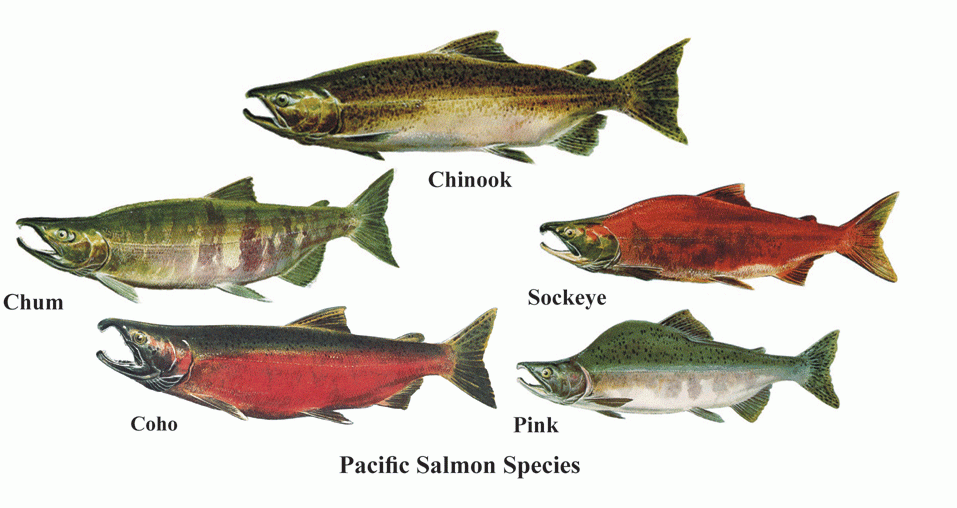I’m recovering from pneumonia, and the antibiotic I’m on has left me with a disgusting taste in my mouth that has changed how everything tastes. Even water tastes gross.

So in thinking about how all of my favourite foods all taste wrong, my mind went to a food that I happen to work on, salmon.
Salmon is salmon, right? What’s the big deal? “Wild salmon,” here on the Pacific coast, typically means one of the 5 Pacific salmon species.

“Farmed salmon” is always Atlantic Salmon. Since Pacific salmon species are all in decline, isn’t it more responsible to buy farmed salmon to allow the wild populations to recover? In theory it’s a great idea, but we need to solve the problem of escaped Atlantic salmon – the aliens of Pacific coastal waters.

Atlantic salmon’s lesser known scary life stage
Fisheries and Oceans Canada maintains that even if Atlantic salmon were to escape open net pens that naturalization is biologically impossible. And since abandoning their Salmon Watch program, their voluntarily reporting system, the lack of data supports their premise.

However, Atlantic salmon are being found outside of open net pens, and they are making their way into Pacific rivers and streams where the Pacific salmon species spawn. Our research shows that Atlantic salmon are found in over half of Pacific streams, and that Atlantic salmon are found in nearly every single stream where the native Pacific salmon diversity is high.

Since farmed Atlantic salmon are indeed found in Pacific streams year after year, it means that either there are chronic escapes from fish farms or that previously escaped Atlantic salmon have indeed naturalized (perhaps they didn’t get the memo from Fisheries and Oceans). With Pacific salmon already in decline, what can we do to help rectify the situation? One simple solution could be to have snorkel survey inspections of open net pens become a requirement for fish farm licensing, since motivation for voluntary surveys seems lacking.

Okay, no tears here… today
Another option would require Fisheries and Oceans Canada to accept the growing body of evidence that Atlantic salmon is quite at home in the Pacific. Atlantic salmon isn’t found on the list of fish that can be caught with your fishing licence. A fisherman would then throw back a catch they can’t identify. By not including Atlantic salmon on the list of fish species to be harvested, they are ensuring that Atlantic salmon is effectively protected from wild harvest. Here’s an idea: let’s include Atlantic salmon on the list of fish species to be harvested, but without limit!

Let’s catch 100 more!
So what’s for dinner? I’ll take the wild-caught alien Atlantic salmon please. Ocean Wise better get on that.
<Originally published at https://alinacfisher.wordpress.com/2015/01/22/tasty-tasty-salmon/>
